He Loved To Play Miniature War Games
Ever hear of Gary Gygax? No? Ever hear of the role-playing board game Dungeons & Dragons? OK, well, Gary Gygax is the ultimate dungeon master: the creator of D&D, a game that has revolutionized all of geekdom and sparked a ton of other role-playing games for decades. For years, however, Gary’s day job was as an insurance underwriter at Fireman’s Fund Insurance Co. His work in this industry played a large part in his development of D&D. “Random chance plays a huge part in everybody’s life.” This statement holds true for much of the gameplay throughout D&D.
Dungeons and Dragons were released en masse in 1974. Yes, it’s been around that long. In the game, players assume a mythical role and go on a quest through a fantasy world, gaining skills and strength as they defeat monsters and accumulate loot. It’s the original form of virtual escapism, and D&D has been allowing kids, teens, and even adults to become warrior superheroes that overcome enormous challenges.
While most of the game is played within the players’ imaginations, one player, the Dungeon Master, is the one who paints pictures for the others. The Dungeon Master describes what other players will see and hear and the outcomes of their choices and actions. The game can be as complex or as simple as you want, with the majority of it being played on a tabletop hex square map. Players get creative by designing and building their own mazes and tunnels along the journey.
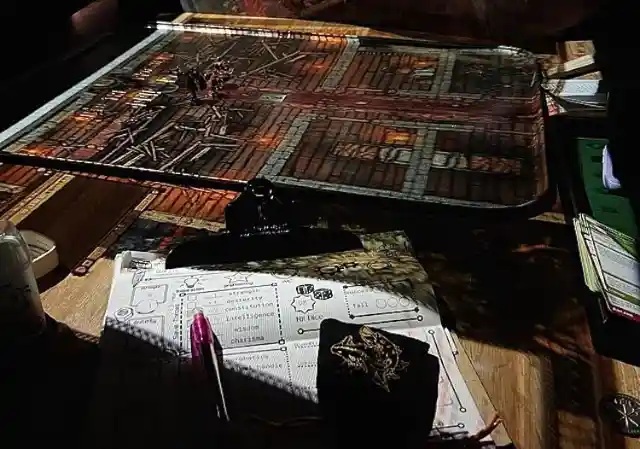
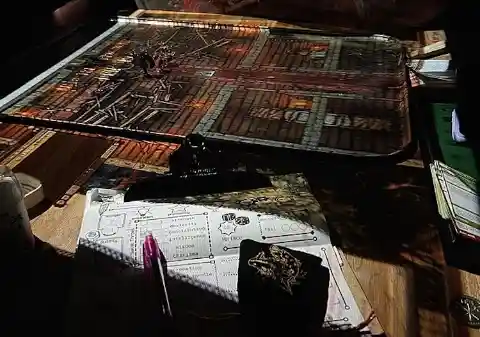
As a kid, Gygax loved taking imaginary journeys through the tunnels beneath the Oak Hill Sanitarium in Lake Geneva, WI, where he grew up. Born in Chicago in 1938, Gygax’s father moved the family to Lake Geneva when Gary was seven so that he would have less opportunity to get into trouble. Lake Geneva is where Gary, at the age of eight, would meet another boy named Don Kaye, who would be instrumental in Gary’s life for the next thirty years. In 1972, Gygax and Kaye formed Tactical Studies Rules, the company that would distribute the initial versions of D&D. Gary and Don worked together as partners until Don passed away in 1975.
Gygax was known to be a very bright kid who was skilled at and enjoyed playing chess and card games, such as pinochle, but he especially loved playing miniature war games and would imagine himself in these games for hours while he was skipping school to go explore the tunnels of the sanitarium. One of his favorite games was called “Gettysburg,” a kind of tabletop game that focused on various battles. But Gygax and Kaye would take that game to the next level, often making their own miniature soldiers and creating explosions on the board. Gygax loved to make “improvements” to the games, always looking for ways to increase the randomness of chance in the games. This eventually led to his creation of the 20-sided die, which has become a hallmark of the D&D game.
A Young Gygax Read A Lot Of Pulp Horror And Fantasy
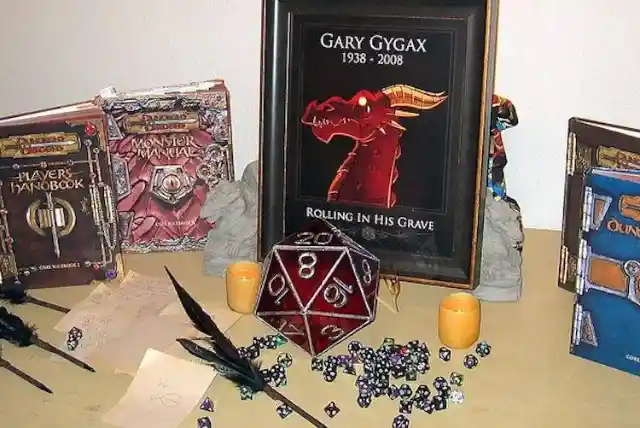
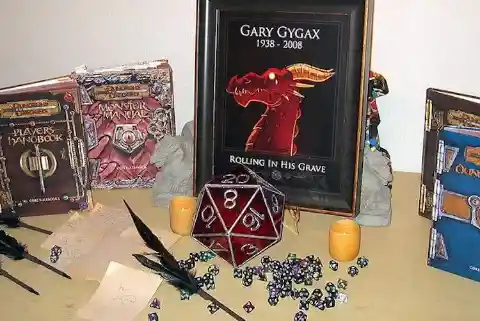
Hand in hand with his love of fantasy gameplay was Gary’s love of reading fantasy and pulp horror fiction stories. Authors like Robert E. Howard and H.P. Lovecraft, who wrote about heroes and demons on epic journeys and battles, would serve up a lot of inspiration for Gygax’s iconic game.
Gary Played So Many Games, His Wife Thought He Was Cheating On Her
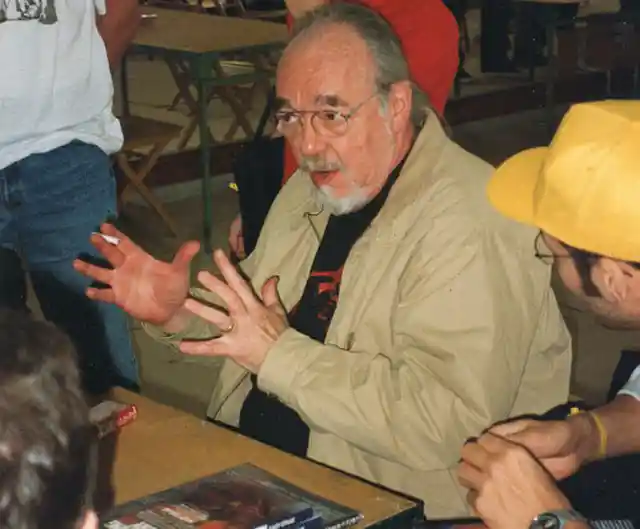
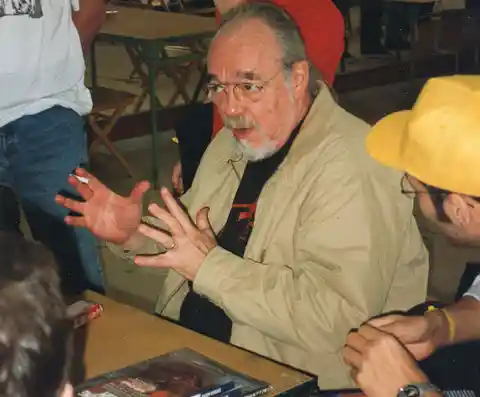
Clearly, Gary’s love of fantasy gameplay didn’t wane as he reached adulthood. He spent so much time outside of his day job playing war games every night of the week that at one point, his wife Mary Jo thought that he had to be cheating on her. Well, he wasn’t, or at least not with another woman. These games could almost be considered Gygax’s first love. And fans of D&D for the last several decades are so grateful that was the case.
Gygax’s basement-based publishing company, Tactical Studies Rules, would go on to become a corporate mogul, employing over 600 staff within a decade. D&D has been translated into a dozen languages and has sold millions of copies in 50 countries, making a fortune and leaving an indelible legacy in the process. Not bad for a guy who spent so much of his time in another world.